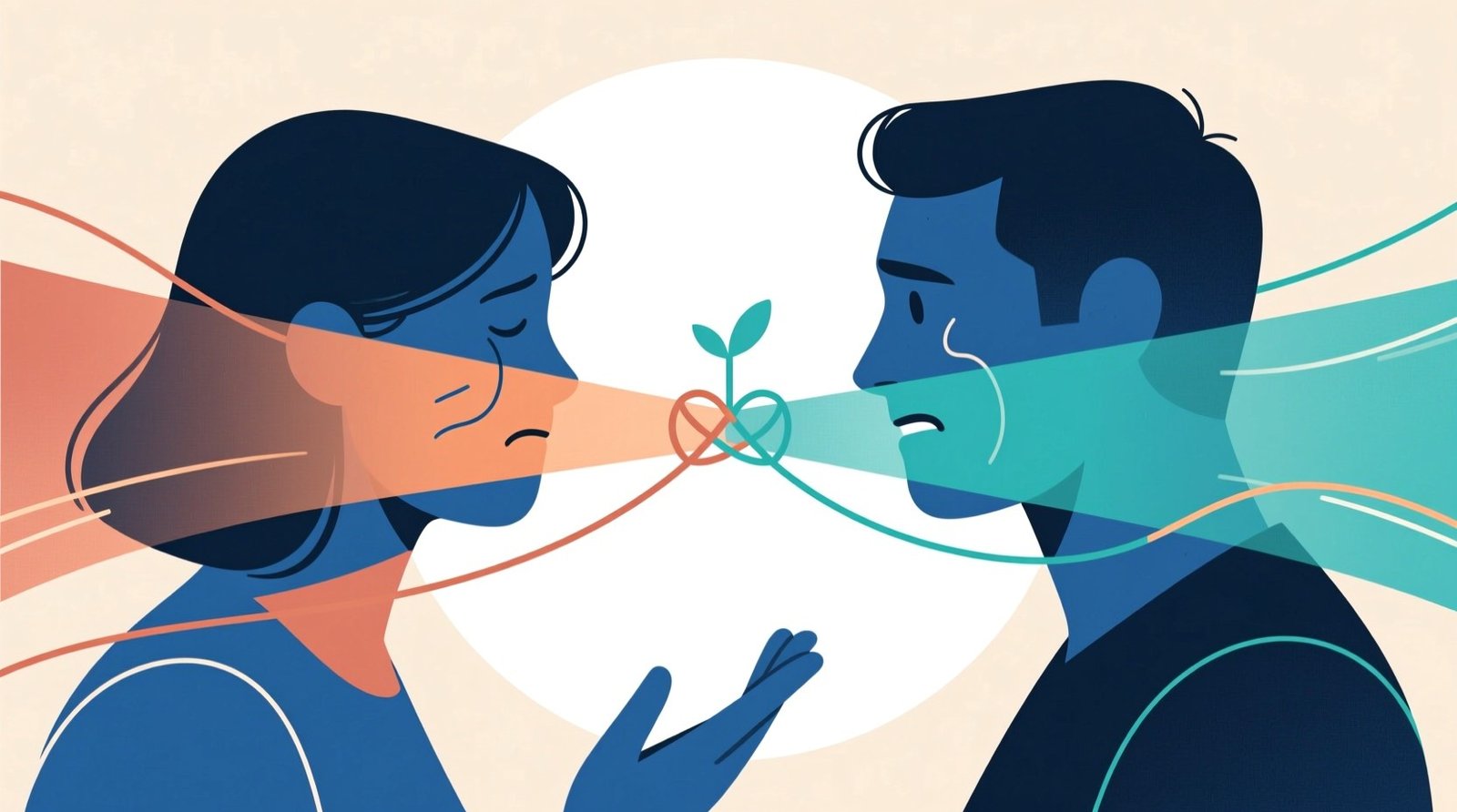Introduction to Modern Love
The concept of modern love has transformed significantly over the past few decades, reflecting the dynamic nature of societal values and technological advancements. Today’s interpretation of love not only integrates traditional romantic ideals but also embraces various forms of relationships, including platonic and familial bonds. As technology continues to permeate our daily lives, the ground rules of dating and relationships have evolved, creating a new landscape for individuals seeking connection.
One of the most notable influences on modern love is the rise of digital communication. Online platforms have reshaped how partners meet, interact, and maintain their connections. Dating applications and social networking sites have not only expanded the pool of potential companions but also introduced a layer of convenience and accessibility previously unprecedented in the dating world. However, this shift comes with challenges, including concerns about authenticity and the depth of emotional connections forged through screens. The immediacy of technology can sometimes lead to superficial interactions, which necessitate a more profound approach to relationships.
In addition to technological impacts, societal norms around love and relationships have also seen substantial change. There is an increasing acceptance of diverse relationship structures, such as open relationships and same-sex partnerships. This evolution underscores a broader understanding of love, which is now viewed through a more inclusive lens. With these changes, the idea of support in relationships has gained prominence. Support encompasses emotional, psychological, and even financial assistance between partners, fostering a sense of security and understanding that is vital for healthy interactions. Such foundational elements are crucial as individuals navigate the complex world of modern love, highlighting the importance of mutual respect and care within relationships.
The Role of Communication in Relationships
Effective communication serves as the cornerstone of healthy relationships in the modern era. Partners who engage in open and honest dialogue can foster trust and understanding, significantly enhancing their emotional connection. Various communication styles emerge in relationships, such as assertive, passive, passive-aggressive, and aggressive. Recognizing individual styles is crucial in navigating potential miscommunications and promoting constructive conversations. This awareness can help partners adapt their approaches to better align with each other’s needs and preferences.
In today’s digital age, communication has evolved dramatically, introducing both opportunities and challenges. On one hand, technology offers myriad platforms for partners to connect instantly, but on the other, it can lead to misunderstandings or feelings of disconnection. Misinterpretations often arise in text-based communication, where tone or intent can easily be obscured. Therefore, it is essential to balance digital interactions with face-to-face conversations to ensure clarity and emotional depth.

Strengthening Relationships Through Effective Communication and Emotional Support
To improve dialogue between partners, several strategies can be employed. Active listening is fundamental; it involves fully concentrating on what the other person is expressing, rather than just waiting for a turn to speak. This practice not only validates feelings but also shows a commitment to mutual understanding. Moreover, setting aside dedicated time to discuss feelings and thoughts fosters a safe environment for sharing, promoting vulnerability and connection.
Ultimately, the synergy between effective communication and emotional support is clear. Partners who excel in dialogue are often able to navigate challenges more effectively, resulting in increased intimacy and a more profound connection. By continuously working at communication, couples can build a resilient relationship that thrives on trust, empathy, and mutual respect. In conclusion, the role of communication is pivotal in modern love, shaping the foundation upon which meaningful relationships are built.
Identifying Common Relationship Challenges
Every relationship, no matter how strong, faces challenges. Understanding and addressing these issues early can prevent conflicts from escalating. Below are some of the most common relationship challenges couples face, along with ways to manage them:
Communication Breakdown:
Poor communication is a leading cause of conflict in relationships. Misunderstandings, assumptions, and not actively listening can lead to feelings of frustration and resentment. To improve communication, couples should practice active listening, express themselves clearly, and avoid interrupting during conversations.
Trust Issues:
Trust forms the foundation of any relationship. Whether due to past experiences or current behaviors, trust issues can erode intimacy and connection. Building trust requires transparency, consistent actions, and open discussions about concerns or insecurities.
Conflicting Priorities:
As individuals grow and change, their priorities may shift, causing friction in relationships. It’s essential for partners to discuss their goals, values, and expectations regularly to ensure they are aligned. Compromise and understanding are key to managing differing priorities.

Intimacy and Connection:
Over time, couples may feel a decline in emotional or physical intimacy. Maintaining a deep connection requires effort and vulnerability. Setting aside quality time for each other, engaging in activities that promote bonding, and regularly expressing love and appreciation can help rekindle intimacy.
Financial Disagreements:
Money is often a sensitive topic in relationships. Disagreements about spending, saving, or financial responsibilities can lead to tension. Openly discussing financial goals, creating a budget together, and being transparent about income and expenses can help avoid conflict.
By recognizing and addressing these common relationship challenges, couples can foster stronger, healthier, and more fulfilling connections. Continuous effort, empathy, and effective communication are vital to overcoming obstacles and maintaining a lasting relationship.
Building a Supportive Relationship Environment
Creating a supportive relationship environment is essential for fostering a healthy partnership. At the core of this environment are three fundamental components: mutual respect, empathy, and trust. Each of these elements not only contributes to a nurturing atmosphere but also strengthens the connection between partners, enabling them to navigate challenges together.
Mutual respect serves as the foundation of any strong relationship. Partners should acknowledge and appreciate each other’s opinions, feelings, and boundaries. This respect cultivates an atmosphere where both individuals feel valued, promoting open communication. When each partner understands that their perspective matters, it fosters a sense of belonging and encourages meaningful discussions. Establishing such a framework helps in reducing conflicts and enhances emotional safety.
Building Strong Relationships: The Power of Empathy and Trust
Empathy is another crucial component in building a supportive relationship. It involves the ability to understand and share the feelings of one’s partner. By actively listening and attempting to appreciate the other’s experiences, individuals can develop deeper emotional connections. Practicing empathy encourages partners to support each other during challenging times, reinforcing the idea that they are a unified team facing obstacles together rather than separate entities. This shared understanding can significantly enhance overall relationship satisfaction.
Trust plays an equally vital role in the dynamics of a supportive partnership. Trust fosters security and confidence, allowing both individuals to express their needs and concerns without fear of judgment. Building trust requires consistent efforts from both partners, as honesty and transparency are paramount. Engaging in open conversations about feelings, aspirations, and worries promotes a culture of accountability and reliability. When both partners actively work toward maintaining trust, they fortify their relationship against potential misunderstandings and conflicts.

Ultimately, the responsibility of cultivating these qualities lies with both individuals. Balancing respect, empathy, and trust within the relationship requires conscious effort and commitment. By prioritizing these components, partners can create a supportive environment that nurtures their connection and enables them to flourish together.
Navigating Conflict with Emotional Intelligence
Conflict in relationships is an unavoidable aspect of modern love. However, how partners navigate these disagreements can make a significant difference in maintaining a supportive atmosphere. Emotional intelligence plays a crucial role in conflict resolution by enabling individuals to understand and manage their emotions, as well as empathize with their partner’s feelings. The first step in effective conflict resolution is self-awareness; by recognizing one’s emotional triggers, partners can approach disputes with a calmer mindset.
Active listening is another essential technique for navigating conflict constructively. This skill entails fully concentrating on what the other person is saying without planning a response or judgment. By encouraging an open dialogue, partners can create an environment where both parties feel heard and valued. It is vital to acknowledge each other’s concerns, as this can significantly reduce tension during difficult discussions. Additionally, employing “I” statements can help express feelings and needs without placing blame, fostering a more collaborative approach to conflict.
Resolving Conflicts with Emotional Intelligence and Mindful Communication
Moreover, it is important to be mindful of the timing and setting when discussing sensitive issues. Choosing a neutral space and an appropriate moment can greatly impact the discussion’s outcome. Utilizing techniques such as taking breaks when emotions run high can also help partners cool down and reflect on the situation. This self-reflection allows for better understanding of one’s own needs and facilitates communication about them effectively.
Ultimately, those who embrace emotional intelligence during conflicts are better equipped to resolve disagreements amicably. By prioritizing self-awareness and active listening, partners can transform conflicts into opportunities for growth and understanding, thereby strengthening their relationship. Cultivating these practices contributes significantly to a supportive environment, even amid challenging conversations.

The Impact of External Influences on Relationships
Relationships are often shaped not only by the bond between partners but also by a range of external influences. Factors such as family dynamics, friendships, and cultural expectations play an integral role in shaping the experiences of couples. For instance, family opinions can significantly impact a relationship; whether in support or criticism, the perceptions shaped within these familial contexts can lead to stress or provide a sense of security, ultimately influencing the partners’ interactions with one another.
Friendships also serve as an external influence, often acting as a support system or source of advice. The presence of friends can either provide positive reinforcement for the relationship or introduce doubt, especially if the friends hold contrasting views about the union. It’s essential for couples to evaluate the input from their social circles and filter advice, allowing them to establish their own narrative without external bias.
Cultural expectations further complicate relationships, dictating norms regarding roles, responsibilities, and milestones. Couples may find themselves at odds with traditional views that do not align with their individual values and desires. When external pressures from cultural norms create discord, it is crucial for partners to address any discomfort through open communication and mutual understanding.
To effectively navigate these external influences, couples should consider setting clear boundaries with family and friends. Establishing a unified front can bolster the relationship’s resilience against external pressures. By presenting a coherent understanding of their partnership to those around them, couples can foster respect for their choices and reduce unnecessary stress. Ultimately, recognizing the interplay of these external factors enables partners to strengthen their relationship, ensuring that it thrives amid outside influences.
Incorporating Technology in Relationship Support
In today’s digital age, technology plays a significant role in shaping relationships, offering both beneficial resources and potential challenges. Various tools and applications have been designed to help couples maintain connection and intimacy regardless of physical distance. For instance, platforms like Couple and Between facilitate seamless communication, allowing partners to share photos, notes, and calendars while fostering shared experiences. Such applications can help to cultivate a stronger emotional bond, serving as a digital scrapbook of memories and an organizer of engagements.
Online therapy and counseling services, such as BetterHelp and Talkspace, also showcase how technology can provide crucial support for couples. These platforms connect users with licensed professionals who can assist in navigating conflicts, improving communication, and enhancing relationship satisfaction. Access to expert advice at any time ensures that partners are better equipped to handle challenges and thereby sustain a healthy relationship dynamic.
However, the influence of technology is not solely positive. The omnipresence of social media can lead to feelings of insecurity and comparisons, as partners may find themselves scrutinizing each other’s online interactions. It is vital for couples to establish healthy boundaries regarding technology use. This can include setting specific times for phone-free conversations and discussing the impact of social media on their relationship. By openly communicating about these concerns, partners can create a mutual understanding to promote trust while limiting potential pitfalls.
Furthermore, digital communication methods, such as texting and instant messaging, can sometimes lead to misunderstandings. The lack of non-verbal cues can cause misinterpretations of tone and intent. Consequently, couples should aim to balance digital interactions with face-to-face conversations, ensuring that emotional nuances are conveyed effectively. Understanding the implications of technology in romantic interactions is essential for nurturing a supportive and resilient relationship.
Advice from Experts: Professional Perspectives
Understanding modern love requires a multifaceted approach that incorporates insights from relationship therapists and counselors. These professionals emphasize the importance of foundational values such as appreciation, patience, and emotional availability, which are crucial for nurturing healthy relationships. According to Dr. Helena Hart, a licensed marriage therapist, “In any relationship, it is vital to express appreciation regularly. Acknowledging your partner’s efforts fosters a sense of trust and solidifies the emotional connection.” This viewpoint highlights that feeling valued helps individuals remain committed, enhancing the overall relationship dynamics.
Moreover, patience emerges as a key theme in therapy. Laura Nelson, a certified relationship coach, asserts that “No relationship is devoid of challenges; having patience means you are willing to invest time and effort to work through issues together.” This perspective encourages partners to understand that overcoming obstacles is a part of growth, ultimately reinforcing their bond. Patience allows for healthier communication, where both individuals can express their needs and feelings openly, leading to a more supportive partnership.
Emotional availability is another critical aspect discussed by experts. Renowned psychologist Dr. Mark Evans notes, “To genuinely support your partner, you must be emotionally present. This means being attuned to their feelings and available to give help when needed.” Emotional availability nurtures a safe space, enabling partners to share vulnerabilities without fear of judgment. It is only through this openness that individuals can foster deeper connections, making emotional support a fundamental pillar in navigating modern love.
Ultimately, integrating these expert insights into daily practices can significantly enhance the quality of romantic relationships. By fostering appreciation, exercising patience, and ensuring emotional availability, individuals are better equipped to support their partners. These foundational values serve not just as guidelines but as essential tools for navigating the complexities of love and relationship support today.
Practical Tips for Modern Couples
In today’s fast-paced world, maintaining a healthy relationship requires conscious effort and commitment. Modern couples face unique challenges, but with the right strategies, they can foster a deep and lasting connection. Here are some practical tips to help couples build strong, loving relationships:
1. Practice Active Listening
Active listening is crucial in any relationship. It involves fully focusing on your partner’s words, emotions, and intentions. Avoid interrupting or planning your response while your partner is speaking. By genuinely listening, you show empathy and respect, which helps strengthen the emotional bond.
2. Prioritize Quality Time
In busy schedules, it’s essential to set aside dedicated time for your partner. Whether it’s a date night, a walk together, or simply enjoying a cup of coffee, uninterrupted time allows for meaningful conversations and strengthens the connection.
3. Communicate Openly and Honestly
Open communication is the backbone of any strong relationship. Share your feelings, thoughts, and concerns without fear of judgment. Honest discussions foster trust and create a safe space where both partners can express themselves freely.
4. Show Appreciation Regularly
Expressing gratitude and appreciation can go a long way in maintaining a healthy relationship. Small acts of kindness, compliments, and thoughtful gestures show your partner that they are valued and loved.
5. Resolve Conflicts Constructively
Disagreements are natural in any relationship, but it’s essential to handle conflicts calmly and respectfully. Focus on finding solutions rather than assigning blame. Compromise, patience, and understanding are key to resolving conflicts effectively.
6. Support Each Other’s Goals
A healthy relationship thrives when both partners support each other’s personal and professional aspirations. Encourage your partner to pursue their dreams and celebrate their achievements. Mutual support helps create a balanced and fulfilling relationship.
7. Keep the Romance Alive
Maintaining romance is essential for a long-lasting relationship. Surprise your partner with romantic gestures, plan special dates, or write them a heartfelt note. Keeping the spark alive helps deepen your emotional connection.
8. Practice Forgiveness
Mistakes happen, and holding onto grudges can damage a relationship. Practice forgiveness and learn to move forward. Acknowledging mistakes and working together to grow strengthens the relationship over time.
9. Stay Emotionally Connected
Emotional intimacy is just as important as physical intimacy. Share your dreams, fears, and aspirations with your partner. Emotional vulnerability builds trust and creates a deeper connection.
10. Seek Professional Help if Needed
If relationship challenges feel overwhelming, seeking professional help, such as couples therapy, can provide valuable insights and guidance. Therapists can help you work through difficult issues and strengthen your bond.
By incorporating these practical tips into your relationship, modern couples can foster stronger connections, improve communication, and build a foundation of trust and respect. A healthy relationship requires effort from both partners, but the rewards of love, support, and happiness are well worth it.
Conclusion: Embracing Love with Understanding
In navigating the complexities of modern love, it becomes increasingly evident that support plays a pivotal role in fostering healthy and enduring relationships. Throughout this discussion, we have explored various aspects of relational dynamics, emphasizing the importance of communication and collaboration. The foundation of successful partnerships lies in the active efforts of both individuals to understand each other’s needs and perspectives. It is through this understanding that love can flourish, enabling couples to overcome the inevitable challenges that arise.
Moreover, establishing an environment of emotional support enhances not only intimacy but also strengthens the bond between partners. Couples are encouraged to consistently engage in meaningful conversations, fostering a space where feelings can be openly expressed without fear of judgment. Active listening and empathetic dialogue serve as vital tools in deepening relational connections and addressing misunderstandings before they escalate into larger conflicts.
An essential component of thriving relationships is the commitment to continuous growth. Both partners should regularly assess their interpersonal dynamics, identifying areas for improvement and reinforcing shared values. This reflection invites couples to embrace vulnerability, acknowledging that both strengths and weaknesses are integral to their collective journey. By cultivating a supportive atmosphere, partners can collaboratively navigate the complexities intrinsic to modern love, enhancing their emotional resilience.
As we conclude, let us encourage each other to prioritize understanding in our relationships. By committing to open communication, fostering collaboration, and actively supporting one another, we can embrace love in its most enriching form. Love transcends merely a feelings-driven partnership; it is a dedicated journey requiring intentional action and mutual respect. Embrace this opportunity for growth, and let your relationships flourish.
FAQs: Navigating Modern Love – Conversations on Support and Relationships
1. Why is communication important in modern relationships?
Communication is the foundation of any healthy relationship. It allows partners to express their feelings, share concerns, and resolve conflicts effectively. Open communication fosters trust, understanding, and emotional intimacy, helping couples navigate the complexities of modern love.
2. What is active listening, and how can it improve my relationship?
Active listening is the practice of fully focusing on your partner’s words, body language, and emotions without interrupting or thinking of your response. By actively listening, you show empathy, validate your partner’s feelings, and strengthen your emotional connection. This technique helps reduce misunderstandings and fosters a deeper bond.
3. How can couples support each other emotionally?
Emotional support involves being present for your partner during difficult times, offering encouragement, and showing empathy. Simple acts like listening without judgment, providing comfort, and being available can significantly strengthen your relationship. Emotional support is key to building trust and maintaining a strong connection.
4. What are the common challenges in modern relationships?
Modern relationships face challenges such as busy lifestyles, career pressures, technology distractions, and balancing personal and relationship needs. Miscommunication, lack of quality time, and unresolved conflicts can also create strain. Addressing these challenges requires patience, open dialogue, and mutual understanding.







[…] therapy addresses jealousy and insecurity by exploring underlying causes and boosting self-esteem. Therapists help both partners develop healthy coping mechanisms and encourage transparency, which can […]
[…] your own definition of love is a crucial first step in the process of dating for love. Each individual experiences love differently, shaped by personal values, past experiences, and […]